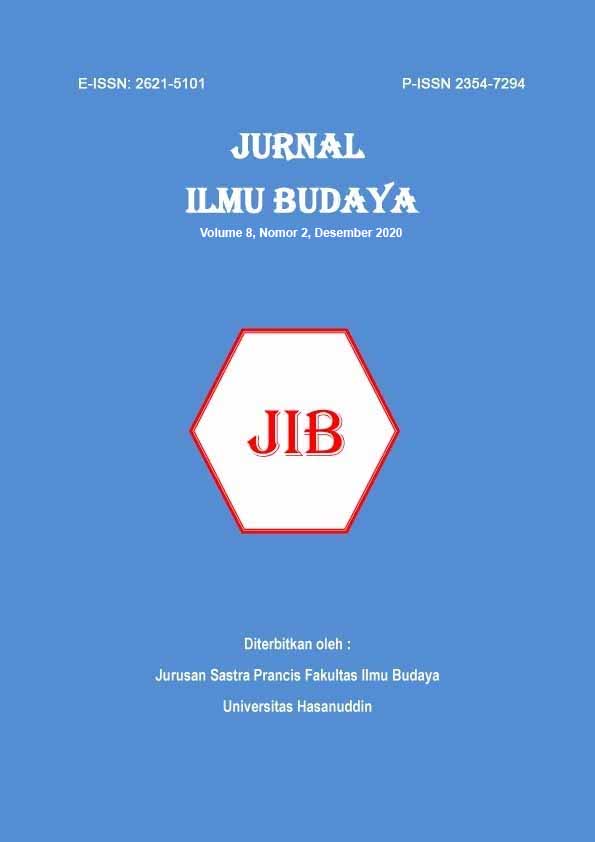NILAI KEARIFAN UNGKAPAN BUDAYA JAWA “RUKUN AGAWE SANTOSA” DALAM GAGASAN PEMIKIRAN EMMANUEL LEVINAS
DOI:
https://doi.org/10.34050/jib.v8i2.10986Keywords:
Pillars, Peace, Ethics, Relations, The othersAbstract
The focus of this research is the theme of Javanese local wisdom culture which related to Javanese proverb expressions about "Rukun Agawe Santosa". My aim is to explore further how these Javanese proverbs are carried out by the Javanese people themselves in daily life. To deepen this study the methodology that I used was Comparative Study with an awareness of the ethical values and harmony that was sparked in the Javanese proverb expression "Rukun Agawe Santosa". Through Emannuel Levinas's thoughts on Ethics and in the expression of Javanese local wisdom culture, I find that the value of environmental ethics is growing today due to the emergence of a stronger awareness of the importance of maintaining relationships with "the other" ie the earth and all its contents but in general, ethics are the most talked about in the context of human relations and ultimately the Javanese cultural expression "Rukun Agawe Santosa" becomes the main capital and the most appropriate way of creating solid unity and unity so as to create a strong and peaceful society.
References
A.Denny Firmanto, Homili Ekaristi, dalam penutupan sidang Kapitel Provinsi PIJ Indonesia, 12 November 2108.
Armada Riyanto. 2018. Relasionalitas, filsafat fondasi interpretasi: aku, teks, Liyan, Fenomen, Yogyakarta: Kanisius.
Burhanuddin Salam. 1997. Etika Sosial, Asas Moral dalam kehidupan Sosial, Jakarta: PT Rineka Cipta,
Cahier de L’Herne. 1991. Levina,. “Secularisation et Faim”, Chicago: L’Herne, 1991.
Erfi Firmansyah, Refleksi budaya Jawa dalam novel bumi manusia dan anak semua bangsa persfektif filsafat, https://jurnal.unej.ac.id/index.php/LIT/article/view/6124
Faturochman. 2018. Psikologi Relasi Sosial, Yogyakarta: Pustaka Pelajar.
Iman Budi Santosa. 2012. Spiritualitas Jawa Sejarah, Laku dan Intisari Ajaran, Yogyakarta: Memayu Publishing.
Jill Robbins. 2001. Levinas, Interview with Francois Poirie, is it Righteous to Be?: Interviews with Emmanuel Levinas, Stanford: Stanford University Press.
John W. Creswell. 2018. Research Design: Pendekatan metode Kualitatif, Kuantitatif dan Campuran, Yogyakarta: Pustaka Pelajar.
Kuswarini, P., Hasyim, M., Chotimah, Irma N.H. 2020. Othering The Self as a Form of Mimicry in The English Translation of Hirata’s Laskar Pelangi. Journa of Critical Reviews. 7 (19), 1286-1295
Mohammad A Syuropati. 2015. Kumpulan Mutiara Kearifan Jawa, Yogyakarta: Syura Media Utama.
Nidra Poller. 2016. Levinas, Humanism of the Other, Urbana dan Chicago: University of Illinois Press.
Nursid Sumaatmadja. 1986. Pengantar studi Sosial, Bandung: Alumni.
Pardi Suratno, Henniy Astiyanto/ 2013. Gusti Ora Sare, Yogyakarta: Adiwacana.
Shintya Putri Setiowati. 2020. Pembentukan Karakter Anak Pada Lagu Tokecang, Jawa Barat. Jurnal Ilmu Budaya. 8 (1), 172-177
Thomas Hidya T. 2012. Enigma Wajah Orang Lain: menggali Pemikiran Emmanuel Levinas, Hidup dan Karir Levinas, Jakarta: Gramedia.
Downloads
Published
Issue
Section
License
Copyright (c) 2020 JURNAL ILMU BUDAYA

This work is licensed under a Creative Commons Attribution-NonCommercial 4.0 International License.


